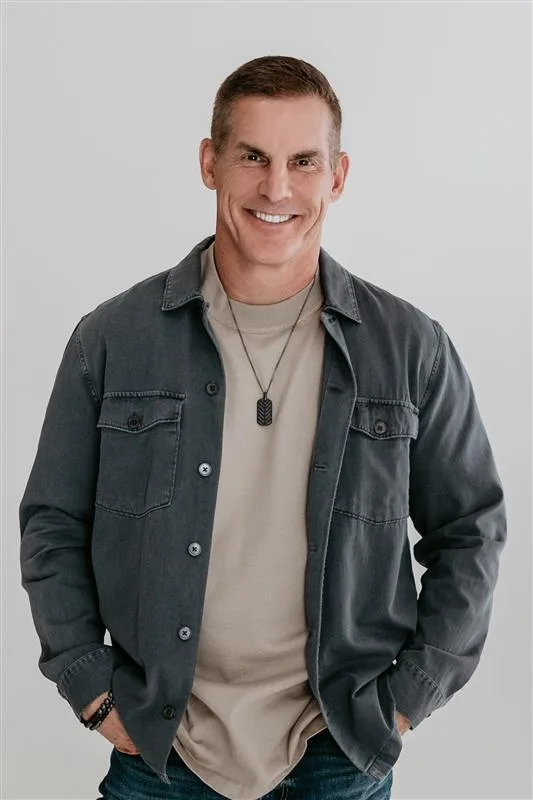“I will not yell at my kids anymore.”
“I am breaking up with my boyfriend—for real this time!”
“I’m going to stop hitting snooze so I can start getting to work five minutes early instead of five minutes late.”
Why do we make these declarations—and then fail to follow through? Could it be we’ve tried to change what we do and haven’t changed what we think of ourselves?
If so, that is a formula for failure. We cannot put do before who, but we do. We do it all the time. We decide to change what we do.
The problem is trying to change our “do” is behavior modification. And behavior modification never works.
Why?
Because behaviors never exist in a vacuum. There’s a reason you do what you do. Attacking behavior makes sense because that’s what you see and find so frustrating. But if you target the behavior, you are going after the wrong thing.
If you try to change your behavior without changing your identity, you’re pulling up a weed without getting to the root.
We’ve all done that, right? Seen some huge, annoying weed towering over our grass, gone over, and ripped it out with the fury of a Marvel villain. It feels great to get rid of the handful of nasty vegetation. Except we didn’t get rid of it. Not unless we dug down and got all of the root out of the ground.
To ensure a weed doesn’t come back, you have to reach down and pull out what is not visible on the surface.
It’s like treating an illness—you can’t deal with the symptom and ignore the real problem causing the symptom.
In a similar way, someone who promises to never watch pornography again may avoid looking at it for a few days. But will they get caught up in pornography again? Yes.
Why? They dealt with the symptom and ignored the real problem causing them to look at pornography.
Motivation and willpower are both limited resources that you will deplete quickly. Behavior modification does not equip you with the power to change.
The reason you haven’t experienced lasting change is because you’ve tried to alter what you do and haven’t changed what you think of you.
James Clear, a guru on change and the author of Atomic Habits, says, “It’s hard to change your habits if you never change the underlying belief that led you to your past behavior. You have a new goal and a new plan, but you haven’t changed who you are.”
Scientists who use cybernetics theory say there are two ways we can try to change. First, there’s what they call first-order change, which is behavior modification. We commit to starting or stopping a specific action. First-order change can have some instant results, but the change will never last.
The second approach, according to cybernetics theory, is second-order change, which is conceptual. The focus is not on acting different but on thinking different, especially about yourself. A cybernetics researcher will tell you that second-order change is the only kind that lasts.
Romans 12:1–2 is one of the most popular passages from Paul’s letters because the “living sacrifice” reference gets a lot of attention. But in verse 2, the apostle shares the key to transformation—real, lasting, eternal change. “Don’t copy the behavior and customs of this world, but let God transform you into a new person by changing the way you think” (NLT). Paul says you’ll experience transformation not by changing what you do but “by changing the way you think.” Boom!
Why would cybernetics theory researchers agree with the apostle Paul? Because you do what you do because of what you think of you.
So to change what you do, you need to first change what you think of you.
Think about a new habit you’d like to start.
What needs to change about your self-perception so you see yourself as someone who follows through on that habit consistently?
Write down a personal “I am…” and an “I do…” statement that focuses on who you want to become and what habit you are trying to achieve. For example, “I am a healthy person. I commit to exercising five days a week.”
Every time you see your statement, declare it over yourself and your actions will begin to shift as you change your self-perception.
Craig Groeschel is the founding and senior pastor of Life.Church, an innovative multi-site church that created the free YouVersion Bible App. He is a New York Times bestselling author and has written fifteen books, including Winning the War in Your Mind and Lead Like it Matters. Known as a leadership expert, he hosts the top-ranking Craig Groeschel Leadership Podcast and regularly speaks for the Global Leadership Network, which reaches hundreds of thousands of leaders around the world annually. Craig and his wife, Amy, live in Oklahoma. To learn more about Craig, visit www.craiggroeschel.com.



















0 Comments